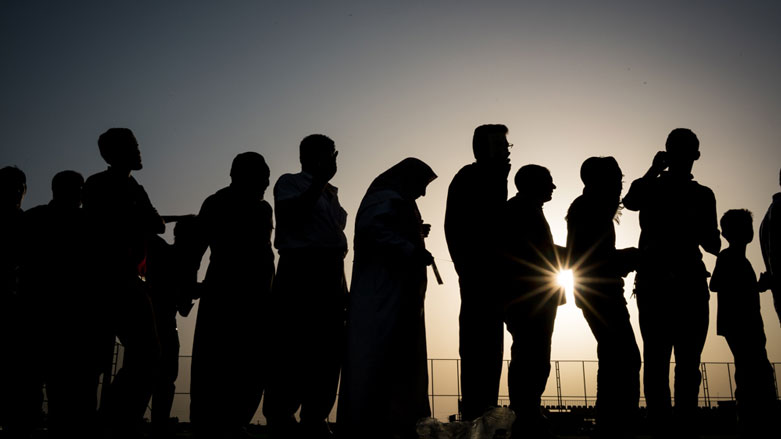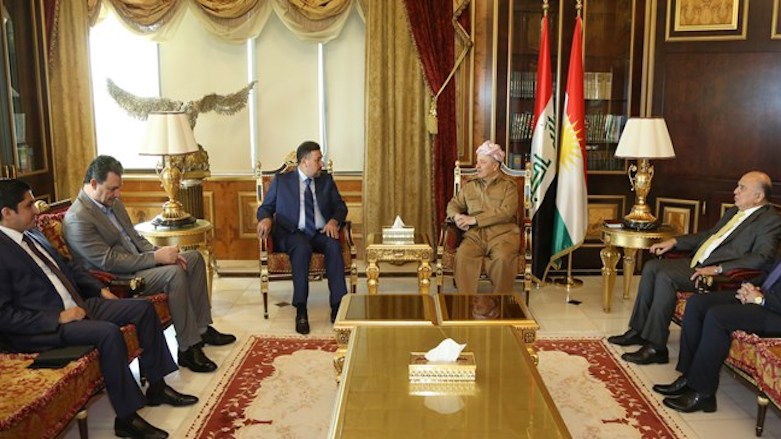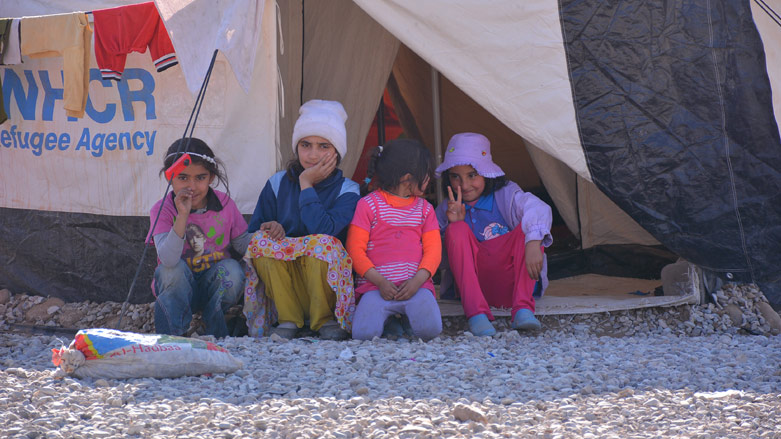4,000 IDPs back in Kurdistan after returning home to Mosul in 2017: Official

ERBIL (Kurdistan 24) – Thousands of internally displaced persons (IDPs) hosted by the Kurdistan Region since the rise of the Islamic State (IS) who returned to their places of origin in 2017 have come back to the region in recent months, a Kurdish official said on Tuesday.
Multiple officials from the Kurdistan Regional Government (KRG), including governors of the four provinces in the region, met on Tuesday with UN agencies and humanitarian organizations in Erbil regarding the current situation of the Syrian refugees and IDPs now in the Kurdistan Region.
Following the meeting, KRG Department of Foreign Relations (DFR) head Falah Mustafa held a press conference with Ramanathan Balakrishnan, the representative for the United Nations Population Fund (UNFPA).
Mustafa highlighted the need for more humanitarian aid for refugees and IDPs in the Kurdistan Region, stating that their presence has put a great strain on the KRG's resources and economy.
He also announced that about 4,000 IDPs who had returned home to Mosul and surrounding areas after being liberated from IS had returned to the Kurdistan Region in 2018, but gave no further details surrounding the circumstances of their return.

The KRG spends roughly $1.9 billion per year for basic services and humanitarian aid for displaced people it hosts, he said, and called on the international community and humanitarian organizations to help meet their needs.
Mustafa noted that the KRG supports a voluntary return of IDPs with basic services and job opportunities as well as a hope for future life in their areas. He mentioned that all these efforts need national and political reconciliation to secure and stabilize the liberated regions.
Over the past few years, the Kurdistan Region was home to 1.8 million IDPs and refugees who fled from Syria and other parts of Iraq due to the threats of IS. Nearly four million Iraqis were displaced when the Islamic State (IS) emerged in northern Iraq in mid-2014.
Following last year’s victory over the jihadist group, hundreds of thousands of IDPs returned to their homes, but, said Balakrishnan, “hundreds of thousands of IDPs remain displaced, particularly in the Kurdistan Region.”
He said that the new UN's Iraq - Humanitarian Response Plan, launched in March 2018, focuses on support for IDPs to return home.
“In particular, the Kurdistan element of the plan has identified more than 600,000 individuals who are in need of humanitarian assistance in the Kurdistan Region,” the UNFPA representative said, stating they need about $156 million aid to fulfill their needs.
To do this, he said, strong international support was needed, including the support of donors and other organizations.
In the name of the UN and the humanitarian community, he thanked the KRG for “the excellent facilitation and support offered by the Kurdistan authorities in ensuring the UN and humanitarian communities were able to implement the intervention for humanitarian needs of people in Kurdistan.”
Editing by John J. Catherine


